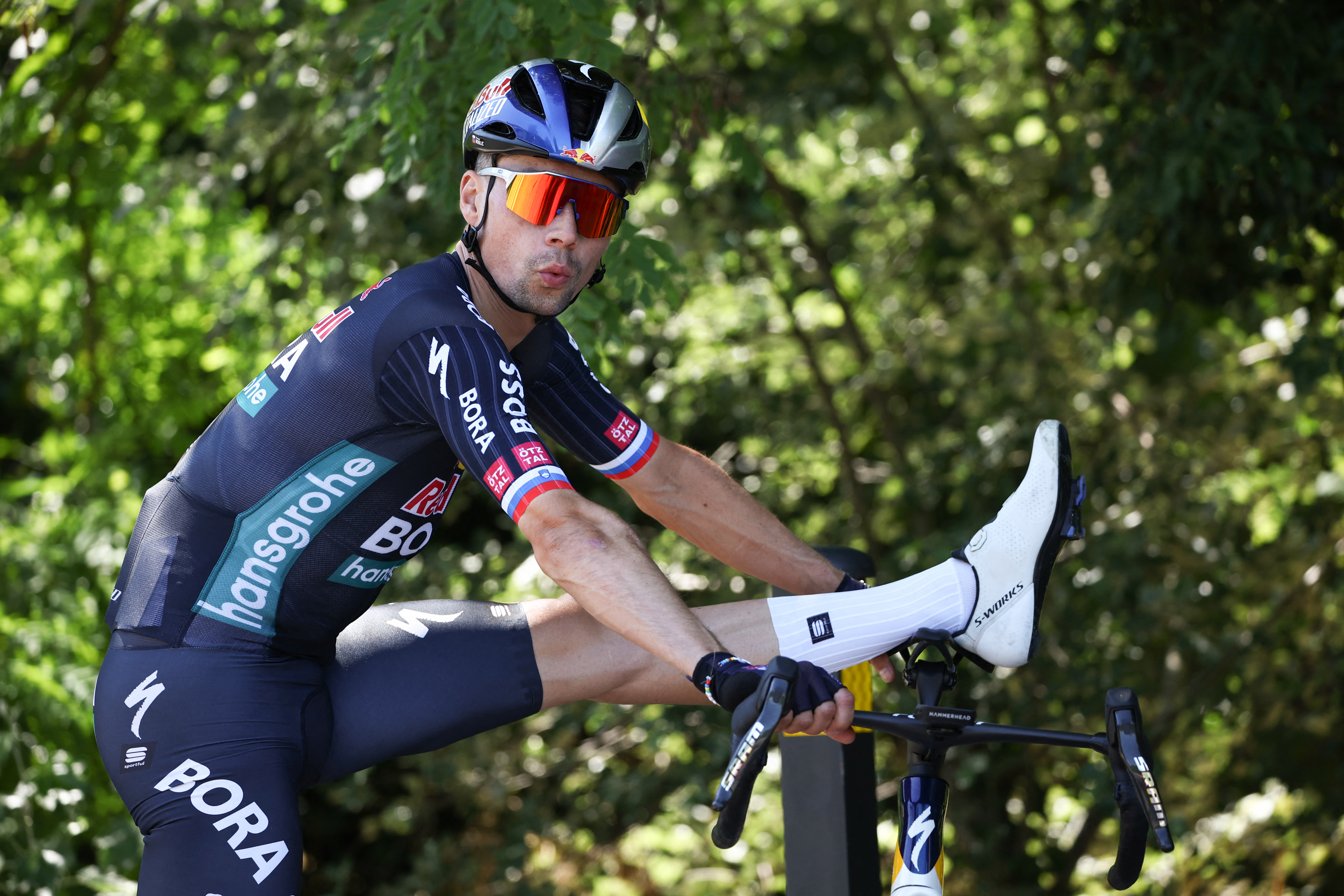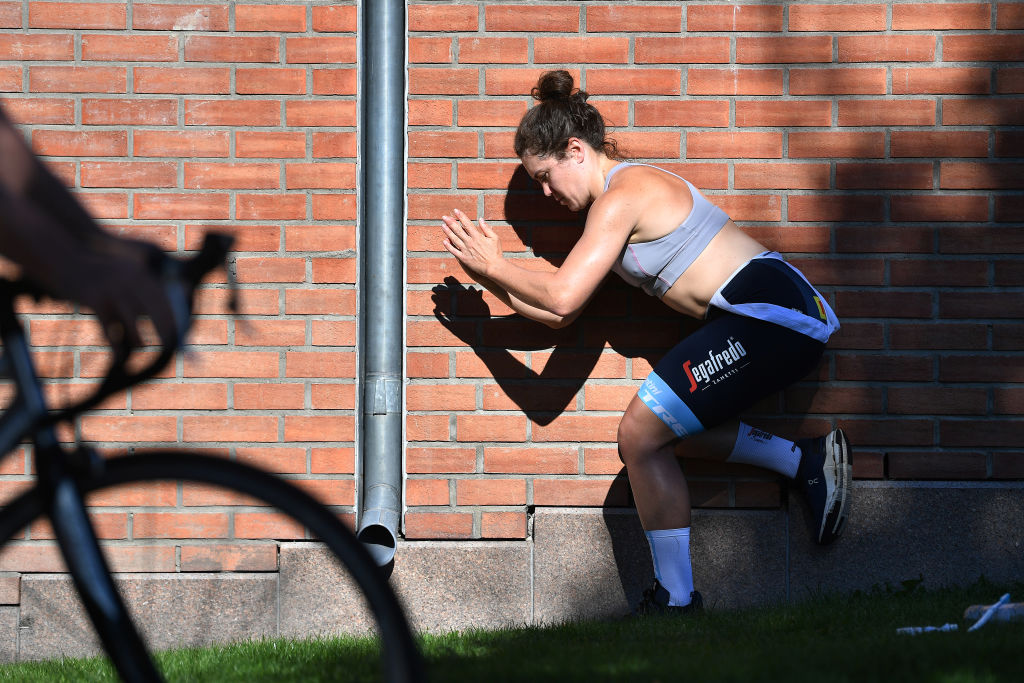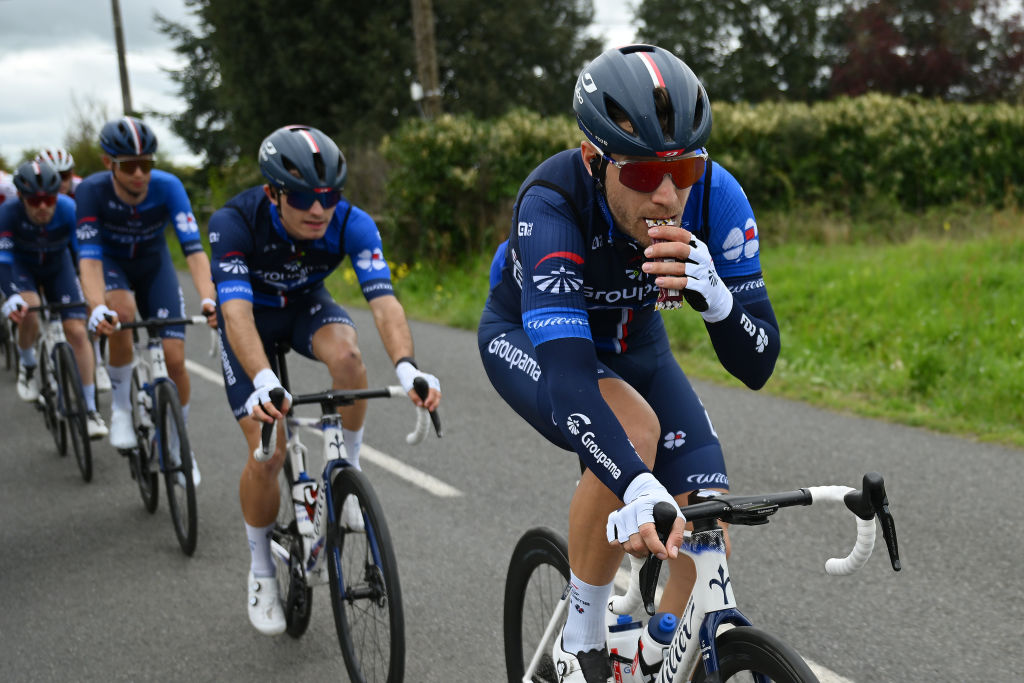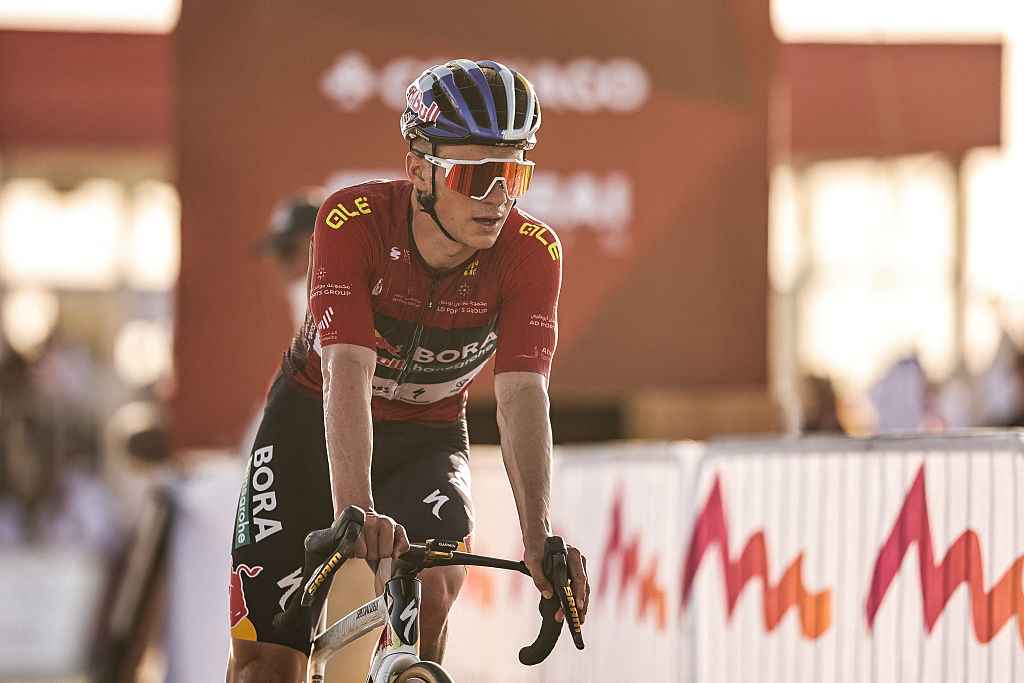
The latest race content, interviews, features, reviews and expert buying guides, direct to your inbox!
You are now subscribed
Your newsletter sign-up was successful
While much of a pro cyclist's training plan involves being on the bike, there are many other elements that contribute to becoming a better, stronger and faster cyclist.
From strength training and nutrition to mental tips and prioritising recovery, various factors and lifestyle elements play a key role in improving a rider’s performance – it's not just pedalling.
To find out how the top riders utilise non-riding strategies to get better and faster, we spoke to two coaches to find out how the pros do it, and what tips you can take on board to improve your own performance.
After our latest fitness guide showed you how to train to become a better climber, here are all the off-the-bike ways you can become a better rider.
1. Strength training
As we've already explored in more depth, pro riders are hitting the gym more than ever these days, and strength training is proving to be a key element to cycling success.
UAE Team ADQ's Silvia Persico credited her gym routine when celebrating victory on stage 3 at the UAE Tour earlier this year, while Tadej Pogačar’s has reportedly ramped up his strength training for this year as he targeted both the Spring Classics and Tour de France.
"This has increased in prominence in the last decade and now you find most cyclists are doing some form of strength and conditioning work," Dani Rowe, coach at Rowe and King and former British track and road cyclist, told Cyclingnews.
The latest race content, interviews, features, reviews and expert buying guides, direct to your inbox!
"The only caveat is you [need to] really define and invest fully. Dipping in and out of strength and conditioning in the gym doesn't really work, you need to buy into it.
"Overload in the off-season and then maintain through the season. It's not something you can do for a couple of months in the winter and then neglect through the season."
2. Stretch properly

Linked to strength training, incorporating a stretching routine can improve a rider’s performance and also prevent injury.
"Stretching is important for preventing sore knees and back issues," said Rowe.
"A lot of riders struggle with sore backs and tight IT bands as well, and especially for those who are spending hours and hours on the bike, maybe four or five hours back-to-back, stretching can really help. It’s a simple one but can be hugely effective."
3. Prioritise high-quality rest
Nowadays, with all the external stimuli like social media, countless apps on phones, and family commitments, properly relaxing can be tricky, but prioritising high-quality rest helps pro riders boost recovery.
"A rest day isn't necessarily a high-quality rest," said Rowe. "A rest day might be no bike but high-quality rest might be no bike with a nap, some time on the sofa, and putting your legs up."
"It's tricky to get that high quality rest frequently because we’ve all got busy lives, family commitments and ultimately cycling is a hobby but for professionals, your job is kind of seven days a week so on a rest day, your job is to rest."
Rowe suggests that getting a massage can help force this high-quality rest.
"It’s quite personal as to whether you buy into the benefits of massage but one thing it does is give you that forced chill out time," said Rowe.
"You're lying down for half an hour which gives you some good switch off time and mindfulness."
4. Prepare kit, bike and route
While pro riders are away at training camp or at a race, they are largely under the wing of a team who prepare everything for them, but when they are at home, it’s all on them. Being prepared can help take some of the effort out of training, allowing you to focus on your performance.
"Preparation is really important, and this means making sure your kit is all organised so when you come to ride, your kit's clean, your bottles are where they should be, nutrition's prepped, and your bike's in good working order," said Rowe.
"Maintaining your bike is part of this. I've known multiple pros who haven’t maintained their bike, the chain snaps when they’re two hours from home and they are sitting on the side of the road waiting for a family member to come pick them up or trying to find a lift to the local bike shop.
"It's not conducive to being a professional standing on the side of the road in the UK in the middle of winter when it's coming down with rain."
It’s not just about your bike and your kit either.
"Be prepared with your routes and to try and get the best out of yourself during your efforts," said Rowe.
"When you have a training plan you know what type of efforts you need to be completing, so if you've got a 20-minute threshold effort, then find a road that's going to enable you to ride for 20 minutes uninterrupted as opposed to trying to tie your effort to a city or to a town or some roundabouts where you're going to get disrupted."
5. Have life admin in check
As with the rest of us, pros also have the stresses of paperwork and life admin and having this all in order helps decrease stress and clear the mind so riders can focus on the job instead.
"Having an orderly house which is neat and tidy, sorting out paperwork and ticking off life admin can help reduce stress," said Rowe.
"This gives riders a clear mind to focus on the job at hand. The less you've got on your mind, the less you've got hanging over you by way of chores and other obligations, then the freer your mind will be to focus on and commit to your bike riding."
6. Nail nutrition

We all know that eating a good diet can reap dividends on and off the bike, and to make this easier, pros will often plan and prep meals ahead of time.
"Prepping your nutrition before you head out so you have pre-ride, post-ride, and evening meals can really help," said Rowe.
"When you come back from a training ride, you're tired and there is a tendency to be a bit lazy and ultimately your nutrition might be sacrificed."
7. Get enough sleep
Sleep is also a crucial element and can exponentially help performance as sleep impacts everything from muscle repair, glycogen storage, and hormonal balance to immune function, mood, and motivation.
Poor sleep means slower recovery, reduced power output, lower endurance capacity, impaired reaction times, and can even weaken the immune system.
Lidl-Trek coach Aritz Arberas Pampin advises between seven and eight hours a night.
"When I see a rider is sleeping less, I always ask 'do you think it's enough?' Some riders are fine with six hours and for me this is incredible because I love sleeping," said Aritz.
8. Mental strength
There is now a greater awareness of the mental wellbeing of riders, and Elisabetta Borgia was the first sports psychologist on a WorldTour team when she joined Lidl-Trek in 2022.
"It's coming into training more and more but generally it's something that the riders do privately," said Aritz.
"You have riders that don't need any kind of mental coaching, while others might speak to their coach about it. There's another level of riders where they use a mental coach to help organise their mind or learn strategies to manage the different needs they have."
If you've got your on-the-bike training down, but still want to make some improvements, try working on a few of the suggestions here, and you'll soon be feeling fitter and faster.
Emma Cole is a gold-standard NCTJ journalist who loves anything to do with adventure, sport and sustainability. Alongside writing about these passions for Cyclingnews, her work has also featured in Cycling Weekly, Outdoors Magic and Cyclist Magazine - where she previously held the role of Features Writer for over two years. Emma hosts her own podcast, The Passion Stories Podcast and has a first-class degree in French and Politics.
You must confirm your public display name before commenting
Please logout and then login again, you will then be prompted to enter your display name.
